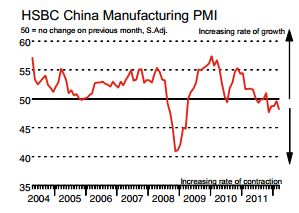Economic events scheduled for today
06:00:00 EUR Producer Price Index (MoM) 0.40% 0.40%
The Producer Price Index released by the Statistisches Bundesamt Deutschland measures the average changes in prices in the German primary markets. Changes in the PPI are widely followed as an indicator of commodity inflation. Generally speaking, a high reading is seen as positive (or bullish) for the EUR, whereas a low reading is seen as negative (or bearish).
08:00:00 EUR IFO – Expectations 102.5 102.7
The IFO Expectations released by the CESifo Group is closely watched as an early indicator of current conditions and business expectations for the next six months, where firms rate the future outlook as better, same, or worse. An optimistic view of those 7,000 business leaders and senior managers is considered as positive, or bullish for the EUR, whereas a pessimistic view is considered as negative, or bearish.
08:30:00 GBP Retail Sales (YoY) 1.40% 1.00%
The retail Sales released by the National Statistics measures the total receipts of retail stores. Monthly percent changes reflect the rate of changes of such sales. Changes in Retail Sales are widely followed as an indicator of consumer spending. Generally speaking, a high reading is seen as positive, or bullish for the GBP, while a low reading is seen as negative or bearish.
12:30:00 CAD Consumer Price Index (MoM) 0.50% 0.40%
The Consumer Price Index released by Statistics Canada is a measure of price movements by the comparison between the retail prices of a representative shopping basket of goods and services. The purchase power of CAD is dragged down by inflation. The Bank of Canada aims at an inflation range (1%-3%). Generally speaking, a high reading is seen as anticipatory of a rate hike and is positive (or bullish) for the CAD.
12:30:00 CAD Leading Indicators (MoM) 0.40% 0.60%
The Leading Indicators released by Statistics Canada measures future trends of the overall economic activity including employment, average manufacturing workweek, initial claims, permits for new housing construction, stock prices and yield curve. It is considered as a measure for economic stability in Canada. Generally, a high reading is seen as positive (or bullish) for the CAD, whereas a low reading is seen as negative (or bearish).
13:00:00 G20 Meeting
The G20 meeting is a gathering of finance ministers and central bank governors from systematically important industrialized and emerging economies to discuss key issues in the global economy. Traders should pay close attention to this event as it might bring a new dimension to the markets.
Euro Dollar
EURUSD (1.3125) The euro is essentially flat from yesterday’s close, leaving the currency firmly in its 11‐session 218 point (1.2995 to 1.3213) range. An uneventful Spanish auction, limited economic data and a generally stable European bond market are leaving markets quiet. Italian industrial orders disappointed; however the more material development from Italy is news that the country will fail to meet its deficit and growth forecasts. Reminding markets of one of the biggest risks facing Europe, the fine balance between austerity and growth which if mismanaged leads to disappointment on both.
The Sterling Pound
GBPUSD (1.6050) Sterling has risen 0.2% from yesterday’s close, performing in line with its peers. GBPUSD has rallied 1.2% over the past four sessions, rising to 2012 highs, at levels not seen since Q4 2011. The pace of this recent upswing has been tame, and as seen in early April, 1.6050 has proven to be a level above which momentum is lost. Tomorrow’s release of retail sales poses a key risk, given relatively elevated expectations, and next week’s GDP data may provide for downward movement due to the possibility of a second quarterly contraction in economic activity
Asian –Pacific Currency
USDJPY (81.51) The yen is underperforming, down 0.5% vs the USD and seeing accelerated weakness into the NA open. Trade figures came in slightly better than expected, although Japan registered a deficit as a result of elevated import growth. Meanwhile, export growth re‐mains on an upswing, having reached levels last seen in early 2011, and prior to the natural disasters. BoJ Governor Shirakawa spoke last night in New York, affirming policymakers’ commitment to continued easing via low rates and additional asset purchase.
AUDUSD (1.0318) The Australian dollar, though, nursed losses after disappointing U.S. data and poor earnings sapped risk appetite.
The Aussie retreated to $1.0318, falling for a second day. However, it too remained within this week’s band of $1.0305-1.0418, with markets yet to find enough momentum to break out of the current range.
Gold
Gold (1640.89) Gold inched lower on Friday and was headed for a weekly decline of 1 per cent, weighed down by persistent concerns about Spain and lackluster US economic data. Spot gold edged down 0.1 per cent to $1,640.89 an ounce by 0041 GMT, on course for a 1-per cent weekly fall. US gold was little changed at $1,642. Spain managed to reach the sales target at a bond auction on Thursday, but at a cost of rising yields as the country struggles to tame its deficit.
Crude Oil
Crude Oil (102.71) Oil prices have closed mixed after recent losses after a successful Spanish bond auction eased concerns that a return of the eurozone debt crisis could hit economic growth. Brent North Sea crude for June gained just three US cents to close at $118.00 per barrel. New York’s main contract, West Texas Intermediate (WTI) crude for delivery in June added 40 US cents to $102.72.
Spain paid a higher borrowing rate in a key auction of 10-year bonds Thursday but managed to keep it below the psychologically key level of six percent. Overall, Spain’s Treasury raised a higher-than-expected 2.541 billion euros ($3.3 billion) in an issue of two- and 10-year bonds, topping the target of 2.5 billion euros. Investors had been nervously waiting for the result of the auction, fearing that a flop could unleash new attacks on Spain’s sovereign debt, reigniting the eurozone debt crisis and thereby ravaging global energy demand.




Comments are closed.